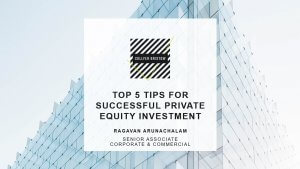- Commercial
- Corporate

Longer Reads
Setting up a business after Coronavirus: making the dream a reality
Many of us may have used this enforced period away from our normal routines as an opportunity to think about a career change – turning a hobby into a business. How might you go about making that dream a reality?
2 minute read
Published 6 April 2020
Key information
- Specialisms
- Business
- Services
- Commercial
- Corporate
Many of us may have used this enforced period away from our normal offices, jobs and routines as an opportunity to think about what we would like to do in the future. Perhaps you have rediscovered a skill, and you’re wondering if it might be possible to turn a hobby into a business. So, how might you go about making that dream a reality? Here are some of the key points to consider.
Registering a company
It is relatively quick, easy and cheap to register a company – the Companies House fee can be as little as £10. This separates the business (and its risks) from your own household money. It also starts giving your business its own identity, including a track record and “credit history”, which will be important to potential lenders to, and investors in the business.
Shareholders and directors
A company will need directors and shareholders – it is important to understand the difference between the two, although in entrepreneurial businesses, the same person (or people) will often be both.
- Directors have operational control of the business, and are subject to legal duties to act in the best interests of the company. (For more information, please see our recent article on Director’s Duties) They receive a salary for their work.
- Shareholders own the company. They have “limited liability” and cannot be required to contribute money or assets to the company beyond the amount they have agreed to pay for their shares. They receive dividends, if the company makes profits, and are able to sell their shares.
Shareholders’ rights
Holding shares in a company entitles you to:
- Voting rights
- Income (dividends)
- Capital – on the sale or winding up of the business
Those rights don’t always have to be in the same proportions – a company’s capital can be divided into share “classes”, each with their own percentages of votes, income rights and capital rights. So different people can put in, and take out, different amounts at different times, and can have more (or less) influence over the running of the business.
For example, it may be that you have someone willing to invest some money in your business. They trust you to run it, so they might be happy with fewer votes, but want to get their money back more quickly. So, they could have the right to the first £x of any dividend, and the first £y if the company is sold. But you’re putting in all the work, and will want more of the long-term value, i.e. you will get the rest, after they’ve had their agreed return. Otherwise, if you’re not careful, an early-stage investor who puts in a relatively small sum will get a large percentage of everything going forward, for as long as they hold the shares.
On the other hand, you might want to reward key employees with shares, at a relatively low cash cost, to incentivise them to work towards the overall value of the business, not just for their salary.
Transfer of shares
In principle, shares are freely transferable, unless something else is agreed. So, if you do let another person have shares in your business, you will want to limit that ability and/or be able to require them to transfer the shares to you, or to a person you choose, at a set price or share of value, if they want to leave.
It’s also important to think, right from the start, about your own exit route, to realise the value you have created. Any potential buyer will want to buy the whole company, so you should build in the power to require any other shareholders to sell, if you want to do so (a “drag-along” right). Equally, other shareholders, who have invested because they have faith in you will want a right to require the buyer to buy their shares also (a “tag-along” right).
Personal financial planning
You will also want to preserve the value of your hard work, including:
- succession planning – if you are unable to run the business yourself for a period, or want to sell it or pass it on
- tax planning – all perfectly respectable, and within the contemplation of the legislation, to reward activities which the government wants to encourage.
Our teams support entrepreneurs in their person affairs and at every stage of their business journey; building, operating, and scaling enterprises from early stage right through to exit.
Related content
Longer Reads
Setting up a business after Coronavirus: making the dream a reality
Many of us may have used this enforced period away from our normal routines as an opportunity to think about a career change – turning a hobby into a business. How might you go about making that dream a reality?
Published 6 April 2020
Associated sectors / services
Authors
Many of us may have used this enforced period away from our normal offices, jobs and routines as an opportunity to think about what we would like to do in the future. Perhaps you have rediscovered a skill, and you’re wondering if it might be possible to turn a hobby into a business. So, how might you go about making that dream a reality? Here are some of the key points to consider.
Registering a company
It is relatively quick, easy and cheap to register a company – the Companies House fee can be as little as £10. This separates the business (and its risks) from your own household money. It also starts giving your business its own identity, including a track record and “credit history”, which will be important to potential lenders to, and investors in the business.
Shareholders and directors
A company will need directors and shareholders – it is important to understand the difference between the two, although in entrepreneurial businesses, the same person (or people) will often be both.
- Directors have operational control of the business, and are subject to legal duties to act in the best interests of the company. (For more information, please see our recent article on Director’s Duties) They receive a salary for their work.
- Shareholders own the company. They have “limited liability” and cannot be required to contribute money or assets to the company beyond the amount they have agreed to pay for their shares. They receive dividends, if the company makes profits, and are able to sell their shares.
Shareholders’ rights
Holding shares in a company entitles you to:
- Voting rights
- Income (dividends)
- Capital – on the sale or winding up of the business
Those rights don’t always have to be in the same proportions – a company’s capital can be divided into share “classes”, each with their own percentages of votes, income rights and capital rights. So different people can put in, and take out, different amounts at different times, and can have more (or less) influence over the running of the business.
For example, it may be that you have someone willing to invest some money in your business. They trust you to run it, so they might be happy with fewer votes, but want to get their money back more quickly. So, they could have the right to the first £x of any dividend, and the first £y if the company is sold. But you’re putting in all the work, and will want more of the long-term value, i.e. you will get the rest, after they’ve had their agreed return. Otherwise, if you’re not careful, an early-stage investor who puts in a relatively small sum will get a large percentage of everything going forward, for as long as they hold the shares.
On the other hand, you might want to reward key employees with shares, at a relatively low cash cost, to incentivise them to work towards the overall value of the business, not just for their salary.
Transfer of shares
In principle, shares are freely transferable, unless something else is agreed. So, if you do let another person have shares in your business, you will want to limit that ability and/or be able to require them to transfer the shares to you, or to a person you choose, at a set price or share of value, if they want to leave.
It’s also important to think, right from the start, about your own exit route, to realise the value you have created. Any potential buyer will want to buy the whole company, so you should build in the power to require any other shareholders to sell, if you want to do so (a “drag-along” right). Equally, other shareholders, who have invested because they have faith in you will want a right to require the buyer to buy their shares also (a “tag-along” right).
Personal financial planning
You will also want to preserve the value of your hard work, including:
- succession planning – if you are unable to run the business yourself for a period, or want to sell it or pass it on
- tax planning – all perfectly respectable, and within the contemplation of the legislation, to reward activities which the government wants to encourage.
Our teams support entrepreneurs in their person affairs and at every stage of their business journey; building, operating, and scaling enterprises from early stage right through to exit.
Associated sectors / services
- Commercial
- Corporate
Authors
Need some more information? Make an enquiry below.
Subscribe
Please add your details and your areas of interest below
Article contributor
Sharon
FryerPartner - Head of Commercial Services
Specialising in Corporate, Commercial and Manufacturing
Enjoy reading our articles? why not subscribe to notifications so you’ll never miss one?
Subscribe to our articlesMessage us on WhatsApp (calling not available)
Please note that Collyer Bristow provides this service during office hours for general information and enquiries only and that no legal or other professional advice will be provided over the WhatsApp platform. Please also note that if you choose to use this platform your personal data is likely to be processed outside the UK and EEA, including in the US. Appropriate legal or other professional opinion should be taken before taking or omitting to take any action in respect of any specific problem. Collyer Bristow LLP accepts no liability for any loss or damage which may arise from reliance on information provided. All information will be deleted immediately upon completion of a conversation.
Close

























































